BUILDING COMIC IMAGINATION THROUGH POLITICAL PARODY: A CRITICAL DISCOURSE ANALYSIS ON DONALD TRUMP IN THE PRESIDENT SHOW AND SATURDAY NIGHT LIVE’S THE PRESIDENTIAL DEBATE
Isna Ardyani Fataya(1*)
(1) Interactive English Language Center (IELC Solo)
(*) Corresponding Author
Abstract
Full Text:
PDFReferences
Alavidze, M. (2017). “The Use of Pronouns in Political Discourse.” International Journal of Arts & Sciences, 9(4), 349-356. Retrieved from http://www.universitypublications.net
Bayram, F. (2010). “Ideology and Political Discourse: A Critical Discourse Analysis of Erdogan’s Political Speech.” Arecls, 7, 23-40. Retrieved from https://pdfs.semanticscholar.org
Becker, A. B. (2012). “Comedy Types and Political Campaigns: The Differential Influence of Other-Directed Hostile Humor and Self-Ridicule on Candidate Evaluations.” Mass Communication and Society, 15(6), 791-812. DOI: 10.1080/15205436.2011.628431
Becker, A. B. (2018). “Live From New York, It’s Trump On Twitter! The Effect of Engaging with Saturday Night Live on Perceptions of Authenticity and the Salience of Trait Ratings.” International Journal of Communication, 12, 1736-1757. Retrieved from: https://pdfs.semanticscholar.org/b6d5/4263f1d3989df18e0d36c6a26b3a8ac82cee.pdf
Blumberg, A. (2018). “Trump on Climate Change Report: ‘I don’t believe it.’” HuffPost. Retrieved from https://www.huffpost.com/entry/donald-trump-climate-change_n_5bfc516be4b0eb6d93128997
Bramley, N. R. (2001). Pronouns of Politics: The Use of Pronouns in the Construction of ‘Self’ and ‘Other’ in Political Interviews (doctoral dissertation). Australian National University, Australia. Retrieved from http://citeseerx.ist.psu.edu/viewdoc/download?doi=10.1.1.125.4780&rep=rep1&type=pdf
Cao, X., & Brewer, P. R. (2008). “Political Comedy Shows and Public Participation in Politics.” International Journal of Public Opinion Research, 20(1), 90-99. DOI. 10. 1093/ijpor/edm030.
Chemnick, J., & Sobczyk, N. (2019). US Moves Closer to Withdrawing from Paris Climate Pact. Retrieved from: https://www.sciencemag.org/news/2019/11/us-moves-closer-withdrawing-paris-climate-pact
Comedy Central (Producer). (2017, Aug 4). There’s No Chaos [Video File]. Retrieved from https://www.youtube.com/watch?v=3LcO4UuTcPE
Comedy Central (Producer). (2017, Jun 2). Screw Science! Bye-bye, Paris! [Video File]. Retrieved from: https://www.youtube.com/watch?v=ofR5FXtAIQQ
Compton, J. (2016). “Live from DC: Saturday Night Live Political Parody References in Presidential Rhetoric.” Comedy Studies, 7(1), 62-78. DOI: 10.1080/2040610X.2016.1139808.
Creswell, J. (2009). Research Design: Qualitative, Quantitative, and Mixed Methods Approach. Los Angeles: SAGE Publication.
Davis, J. L., Love, T. P., & Killen, G. (2018). “Seriously Funny: The Political Work of Humor on Social Media.” New Media & Society, 20(10), 3898–3916. Retrieved from https://doi.org/10.1177/1461444818762602
Deveau, D. J. (2012). English Canadian Stand-Up Comedy as a Field of Cultural Production (doctoral dissertation). Simon Fraser University, Canada. Retrieved from https://core.ac.uk/download/pdf/56376645.pdf
Esralew, S., & Young, G. (2012). “The Influence of Parodies on Mental Models: Exploring the Tina Fey-Sarah Palin Phenomenon.” Communication Quarterly, 60(3), 338-352. DOI: 10.1080/01463373.2012.688791.
Fairclough, N. (1995). Critical Discourse Analysis. London: Longman.
Frischling, B. (2018). “Stable Genius”- Let’s Go to the Data. Retrieved from https://blog.factba.se/2018/01/08/stable-genius-lets-go-to-the-data/
Hakola, O. J. (2017). “Political Impersonations on Saturday Night Live during The 2016 US Presidential Election.” European Journal of American Studies, 12(2), 1-20. DOI: 10.4000/ejas.12153.
Hariman, R. (2008). “Political Parody and Public Culture.” Quarterly Journal Speech, 94(3), 247-272. DOI: 10.1080/00335630802210369.
Hornby, A.S. (2004). Oxford Advanced Learner’s Dictionary. London: Oxford University Press.
Irham & Wahyudi. (2012). “Treating Disclaimer as a Power Strategy of Self-Legitimation and Other De-Legitimation in Netanyahu’s Unga Speech.” Language Discourse & Society, 2(1), 89-106. Retrieved from https://www.academia.edu
Karapetjana, I. (2011). “Pronominal Choice in Political Interviews.” Baltic Journal of English Language, Literature and Culture, 1, 36-45. Retrieved from https://www.lu.lv/fileadmin/user_upload/lu_portal/apgads/PDF/BJ-Eng-Laguage_Literature_Culture-1.pdf
Kucera, E. (2015). Late-Night Comedy and Its Effect on the Public’s Political Opinion (bachelor research). California Polytechnic State University, United States. Retrieved from http://digitalcommons.calpoly.edu
Martin, R. A., & Ford, T. E. (2018). The Psychology of Humor: An Integrative Approach 2nd ed. Boston: D. Reidel Publishing.
Matthes, J., & Rauchfleisc, A. (2013). “The Swiss ‘Tina Fey Effect’: The Content of Late-Night Political Humor and the Negative Effects of Political Parody on the Evaluation of Politicians.” Communication Quarterly, 61(5), 596–614. DOI: 10.1080/01463373.2013.822405.
Riggio, R. E. (2015). The Four Styles of Humor. Retrieved from https://www.psychologytoday.com/us/blog/cutting-edge-leadership/201504/the-4-styles-humor
Sanchez, F. (2016). Political Communication and Virality in the US Presidential Campaign a CDA Analysis of the 2016 US Presidential Candidates’ Discourses and Performances in Late-Night Shows (master’s thesis). Jonkoping University, Sweden. Retrieved from http://www.diva-portal.org/smash/get/diva2:1116821/FULLTEXT01.pdf
Saturday Night Live (Producer). (2016, Oct 16). Donald Trump vs. Hillary Clinton Town Hall Debate Cold Open [Video File]. Retrieved from https://www.youtube.com/watch?v=qVMW_1aZXRk
Saturday Night Live (Producer). (2016, Oct 2). Donald Trump vs. Hillary Clinton Debate Cold Open [Video File]. Retrieved from https://digg.com/video/snl-debate-hillary-trump
Saturday Night Live (Producer). (2016, Oct 23). Donald Trump vs. Hillary Clinton Third Debate Cold Open [Video File]. Retrieved from https://www.youtube.com/watch?v=-kjyltrKZSY
Schiffrin, D., Tannen, D., & Hamilton, H. E. (2001). The Handbook of Discourse Analysis. USA: Blackwell Publishing.
Sultan, B., Rafique, N., Tariq, R., & Imran, M. (2019). “Critical Discourse Analysis of Pakistani TV Comedy Talk Show ‘Khabarnaak.’” American Journal of Humanities and Social Science Research, 3(2), 106-111. Retrieved from https://www.researchgate.net
Szalai, G. (2012). Viacom to launch Comedy Central Extra in Adriatic Region. Retrieved from https://www.hollywoodreporter.com/news/viacom-comedy-central-extra-launch-adriatic-357169
Tierney, D. (2016, Aug 23). “The Twenty Years’ War.” The Atlantic. Retrieved from https://www.theatlantic.com/international/archive/2016/08/twenty-years-war/496736/
Van Dijk, T. A. (1997). “What is Political Discourse Analysis?” Belgian Journal of Linguistics, 11(1), 11-52. Retrieved from: http://discourses.org/OldArticles/What%20is%20Political%20Discourse%20Analysis.pdf
Van Dijk, T. A. (1998). Ideology: A Multidisciplinary Approach. SAGE Publications. London. Retrieved from http://www.discourses.org/OldBooks/Teun%20A%20van%20Dijk%20-%20Ideology.pdf
Van Dijk, TA (1985). Introduction: Discourse Analysis as a New Cross-Discipline. USA: Academic Press, Inc.
Van Dijk, TA (1995). “Discourse Analysis as Ideology Analysis.” In C. Schaffner & A. Wenden (Eds). Language and Peace, 17-33. Aldershot: Dartmouth Publishing.
Van Dijk, TA (2000). Ideology and Discourse: A Multidisciplinary Introduction. Unpublished manuscript, Pompeu Fabra University, Barcelona. Retrieved from http://www.discourses.org/UnpublishedArticles/Ideology%20and%20discourse.pdf
Van Dijk, TA (2004). From Text Grammar to Critical Discourse Analysis: A Brief Academic Autobiography Version 2.0. Unpublished Manuscript, Universitat Pompeu Fabra, Barcelona. Retrieved from https://pdfs.semanticscholar.org
Warren, C., & McGraw, A. P. (2015). “Opinion: What Makes Things Humorous.” PNAS Proceedings of the National Academy of Sciences of the United States of America, 112, 7105–7106. Retrieved from http://dx.doi.org/10.1073/pnas.1503836112
Zoglin, R. (2016). The News Politics of Late Night. Time, 188(12), 42-47. Retrieved from https://time.com
Article Metrics
Refbacks
- There are currently no refbacks.
Copyright (c) 2020 Rubikon : Journal of Transnational American Studies

This work is licensed under a Creative Commons Attribution-ShareAlike 4.0 International License.












